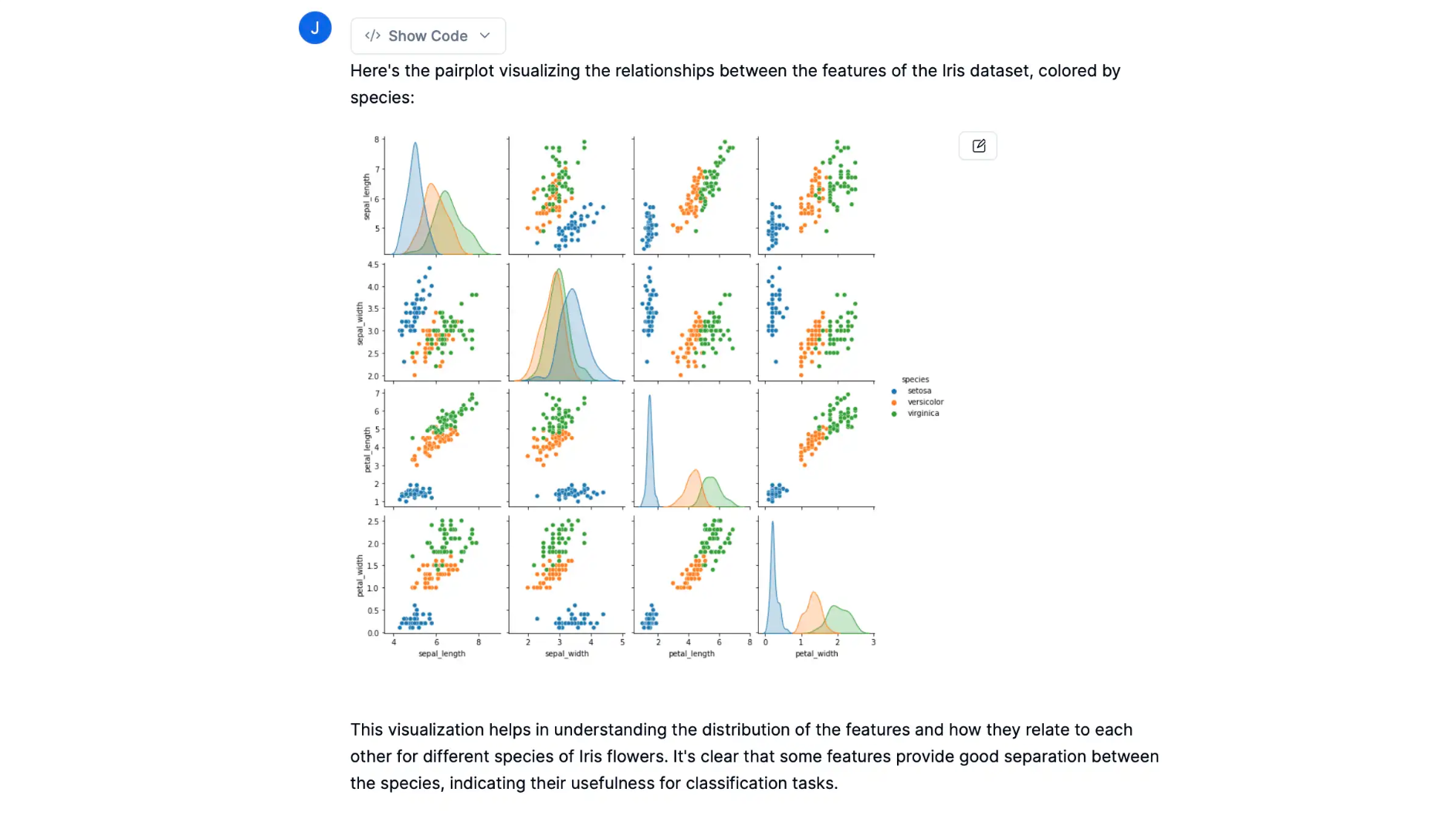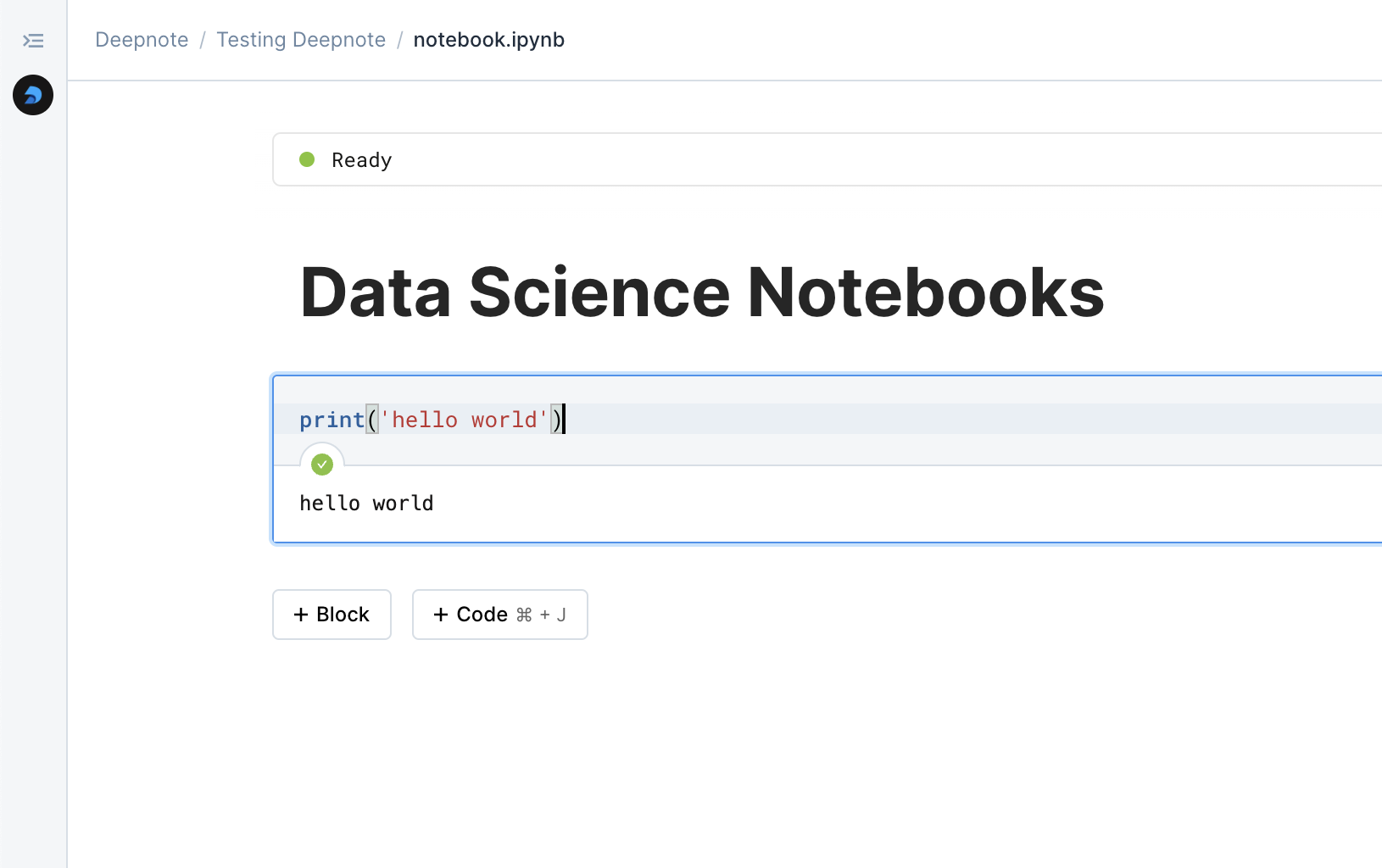

Julius AI

Comparing two data science notebooks.






In today's data-driven landscape, choosing the right platform can significantly impact your team's productivity and analytical capabilities. Julius AI and Deepnote represent two distinct approaches to data science and analytics, each with its own strengths and focus areas. Let's dive deep into how these platforms compare and which might be the better fit for your needs.
Julius AI approaches data analysis through the lens of accessibility, leveraging conversational AI to democratize data insights. It's designed to break down the barriers between users and their data, allowing anyone to generate insights through natural language queries. The platform emphasizes immediate results and automated analysis, making it particularly appealing for business users who need quick answers without diving into complex coding.
Deepnote, on the other hand, builds upon the foundation of traditional data science workflows while modernizing the experience. It creates a comprehensive workspace where data scientists, analysts, and engineers can collaborate seamlessly. The platform combines the power of Jupyter notebooks with cloud computing, real-time collaboration, and advanced development tools, making it a robust choice for professional teams.
When it comes to capabilities, both platforms offer distinct advantages. Julius AI excels in its natural language processing abilities, allowing users to interact with their data as if they were chatting with a knowledgeable colleague. The platform automatically generates visualizations, performs statistical analyses, and even offers predictive insights based on simple questions. This approach particularly shines in scenarios where quick, actionable insights are needed without extensive technical setup.
Deepnote takes a more comprehensive approach to data science workflows. Its environment supports everything from exploratory data analysis to production-ready machine learning models. The platform's strength lies in its collaborative features, allowing multiple team members to work simultaneously on the same notebook while maintaining version control. The integrated AI-assisted coding helps accelerate development while maintaining professional standards.
Data connectivity represents a significant differentiator between these platforms. Julius AI focuses on straightforward data ingestion through file uploads and basic integrations, making it ideal for users working with standalone datasets or simple data sources. The platform's strength lies in its ability to quickly analyze and visualize this data rather than in complex data pipeline management.
Deepnote shines in enterprise environments with its extensive integration capabilities. The platform connects seamlessly with major data warehouses like Snowflake, BigQuery, and various database systems. This robust connectivity, combined with built-in data source management tools, makes it particularly valuable for organizations working with complex data infrastructures.
The collaborative aspects of these platforms reflect their target audiences. Julius AI focuses on individual analysis with sharing capabilities, allowing users to distribute their insights across teams. The platform's strength lies in making complex analyses accessible to non-technical team members through its intuitive interface.
Deepnote embraces a more comprehensive approach to collaboration. The platform supports real-time multi-user editing, sophisticated permission management, and dedicated team workspaces. These features make it particularly suitable for data science teams working on complex projects requiring continuous collaboration and version control.
Choosing between Julius AI and Deepnote ultimately depends on your organization's specific needs and technical requirements. Julius AI is the ideal choice for:
Deepnote stands out for:
Both platforms offer flexible pricing models to accommodate different user needs. Julius AI maintains accessibility with a free tier for basic usage, while offering premium features through paid plans. Deepnote similarly provides a free tier but extends its offering with team and enterprise plans that include advanced features and customization options.
The choice between Julius AI and Deepnote reflects a broader decision about your organization's approach to data analysis. Julius AI democratizes data insights through conversational AI, making it an excellent choice for business-focused users seeking quick, automated analysis. Deepnote provides a more comprehensive development environment, ideal for professional data teams requiring robust collaboration tools and extensive integration capabilities.
Consider your team's technical expertise, collaboration needs, and data infrastructure when making your choice. Both platforms offer valuable solutions, but their distinct approaches cater to different aspects of the modern data landscape.